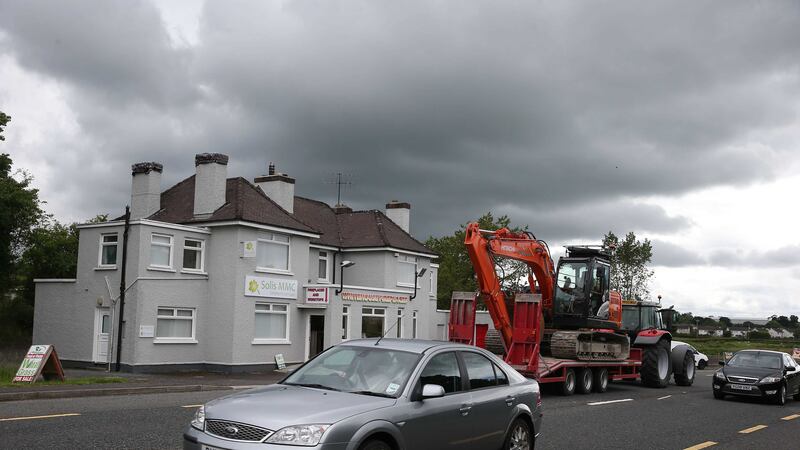EITHER they don’t see the elephant or they have chosen to ignore it.
The British government have put immigration at the top of their Brexit strategy.
They want to control the number and the type of the people who come into their country. That is their prerogative and I am sure they can find a methodology. The elephant is that I don’t think they will be able to do it on the border where I grew up.
My life, like most people who were born in this part of the world, has been marinated in borders, dividing six counties from three others that historically defined the province of Ulster. My young life was spent among neighbours and friends who felt that the unionist government had deserted them on the wrong side of that divide. My working life was mostly among those on the other side who saw the same border as a rupturing of their inheritance and their identity.
I moved among and socialised with guards and soldiers, customs officers and police who variously closed, opened, patrolled, guarded, searched, checked that border. At other times I was amongst those who wanted to obliterate the border from the Irish map but who in the meantime used it as a rallying cry and as an escape hatch between two jurisdictions.
My father was a bus driver who crossed it ten times a day. He would stop at the Irish customs to allow an officer to board the bus, walk among the passengers, picking out one or two to question or to search. Ten yards up the road the same ritual was repeated at the British customs.
Familiarity bred apathy with these rituals but there was always a deep hostility and anger beneath the assumed politeness. Those were the years between the wee ‘troubles’ of the fifties and the big ‘troubles’ that broke out in the beginning seventies. Everyone knew that in any of the ‘troubles’ the custom post was among the first point of attack. Unfortunately, that morphed into barbed wire, soldiers, checkpoints, shoot outs, culvert bombs, dead bodies and dynamited roads and throughout all this time the ‘Common Travel Area’ was operational, sparing us the trouble of having our passports stamped, which was better than nothing but not much better.
Peace and Europe have mostly dissipated those memories and most people who live on the border lands have become contented and blasé with this new world.
But not every jagged stem has faded and blown away. Up to and including today the number of judges, police and prison officers working on the northern side and living within twenty miles of that three hundred miles of border can be counted on one hand. The reason for that reality is complex, ranging from security to geography and including culture, economics and history.
I think it impossible to go back to the past. The memories are too vivid, the consequences too disruptive. I think the backlash from the native population would be so great that they would be likely to tear down any new custom structure with their bare hands. It might be possible to recruit custom officials from outside the border areas but they might come to view the job as akin to the blue coats of the American cavalry entering Apache territory.
The PSNI have pointed out the difficulties and the dangers of recreating a border. They have already sold off a batch of border police stations. An informed guess would be that they have neither the money, the stomach or the ambition to retrace those days.
The British army are reduced in numbers to near peacetime levels and reduced in purpose to decommissioning unexploded bombs. It is difficult to see them being used again as a colonising force to protect outlying governmental structures.
This is an issue that did not form part of the Brexit debate that swept through these islands, the one that will continue to dominate politics for years to come. This is the issue that the English people had no knowledge of and were not informed of in the great debate. This is the issue that the DUP ignored in turning their back on Europe and the Ulster Unionists have failed to address in their belated decision to join that bandwagon. Unionism will come to regret those decisions.
This is an elephant that has been mostly silent but whose roar is going to be awesome in the coming years.









